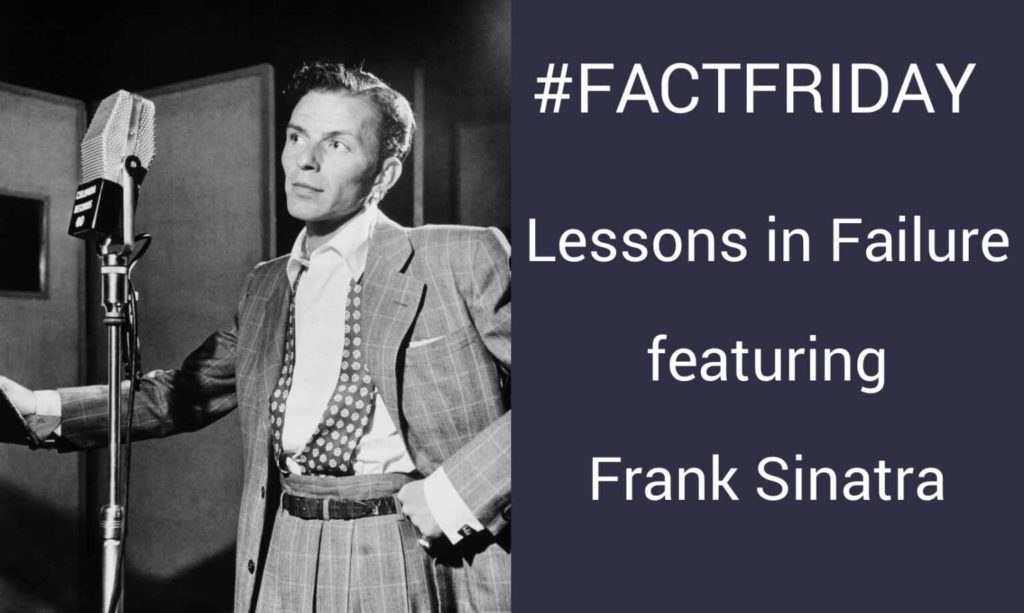This week over 80 years ago, Frank Sinatra cut his first single as a vocalist in the Harry James Band. It flopped. Big time. The song sold only 8,000 copies, but Sinatra continued in his music career and has now sold over 150 million records worldwide. It’s not Witchcraft, but it is a great story of how failure does not have to define your career. There are many instances of failed launches, bankruptcies, or businesses that never have a chance to get off the ground. From these setbacks, entrepreneurs learn valuable lessons and can then go on to create a business that is even stronger with the wisdom from their previous experiences.
What Does a Failed Business Mean?
In fact, more than 50% of businesses do not survive past their fifth year of operation. It is extremely common to fail as an entrepreneur. This does not mean that your dream is dead! Founders of a small business have a HIGHER chance of succeeding if they’ve already failed at a prior business compared to first time founders. So, you are more likely to get it right the second time around because you’ve learned from your losses.
Is Entrepreneurship Worth It?
You may be questioning if entrepreneurship is even worth it. After all, there is a big overlap between your business and your personal life. When I first left my job in the corporate world after decades of stability, it was scary. Entrepreneurship brings highs and lows. Your business will not always be at its best, and you will end up pouring yourself into this venture to get it off the ground. There will be late hours. There will be stress. Yet you will probably be a happier person if you run your own business.
![]()
Will Your Business Fail?
With everything going on in the world right now, there will be business failures. A whopping 84% of business owners that have taken out PPP loans expect to run out of this funding by August. Banks are less likely to approve small business loans and instead are stockpiling billions in cash reserves. There are a lot of reasons why a small business could fail right now. This does not mean that your business will not survive both a pandemic and a recession. There are ways to pivot, cut back, and weather this storm. An area you really want to focus on is your A/R. Working capital that is tied up in your receivables will only limit what you can do with your business. Unlocking that capital will provide further protection for your business. Situations like this are the reason I recommend flexible funding options like lines of credit or invoice factoring. It is crucial to have access to capital that can ultimately keep your business going.
What Happens If Your Business Closes?
If you lose your business because of the far-reaching effects of COVID-19, it will not be the end for you. If you choose to try again, you will have greater success rates than the first time you tried. There are alternative finance options for start up businesses. If your credit score takes a hit, you can still have access to affordable financing through factoring services. You still have options to create and scale your next venture.


